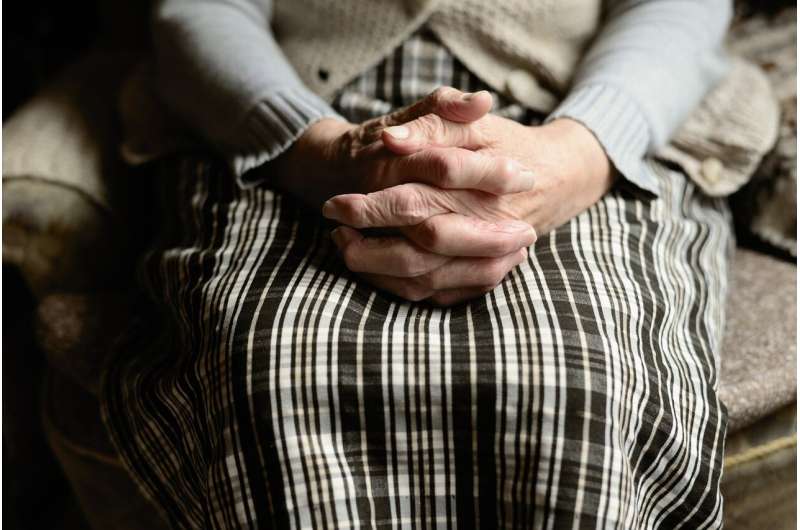This article has been reviewed according to Science X's editorial process and policies. Editors have highlighted the following attributes while ensuring the content's credibility:
fact-checked
peer-reviewed publication
trusted source
proofread
Energy price hikes hit older people hardest, study finds

Adults ages 60 and up in developed nations are spending more money on energy than younger counterparts—and are also more likely to struggle to reduce those higher costs, according to research led in part by University of Maryland geographers.
The research team, which also included experts from Shandong University in China and the University of Groningen in the Netherlands, also found that energy costs consumed a larger share of income as people grow older. The study was published this week in the Proceedings of the National Academy of Sciences.
"Seniors tend to stay longer at home because of their health requirements, and thus have a higher level of household energy consumption. They also have consumption patterns shaped by generational and habitual factors, like the baby boom generation having more fuel demand based on their car preferences," said geographical sciences Professor Kuishuang Feng, one of the paper's authors. "These lead to a higher burden of energy costs."
The researchers pointed out that when energy costs go up, the solution for seniors isn't as simple as budgeting better or getting another job. They noted that few new jobs are being created for people over the age of 55 in the United States.
"Low-income seniors face great challenges in reducing their carbon footprint and managing energy bills due to limited incomes, physical limitations, and living in older, less energy-efficient homes," said geographical sciences Professor Laixiang Sun, another author of the paper. "Lack of information, difficulty adapting to new technologies, and prioritizing health and other expenses over energy-saving investments further exacerbate these issues."
Using data from household expenditure surveys, the researchers found that the energy cost burden of people ages 60 and up was higher than that in three other groups: 30 and under, 30–44 and 45–59. In the United States, the energy cost burden of the 60-plus group was 12.7%, while the rates of the younger groups were 11.3%. 10.9%, and 10.6%, respectively. In Japan, the energy cost burden of the 60-plus group was even higher, at 15% for the 60-plus group and 12.7%. 12.4% and 9.3% for the younger groups.
The researchers also found that the impact was even higher among the nations' lowest-income seniors: 16.9% in the U.S. and 17.1% in Japan.
These findings add to Feng's earlier work on older adults' energy consumption, including a Nature Climate Change paper that found that adults 60 and up from wealthy nations increased their greenhouse gas emissions by 7.5% between 2005 and 2015, putting them in position to surpass the current leader in global greenhouse gas emissions, those ages 45–59.
Feng says the new findings make it even more necessary for policymakers to step in to address this issue–not just to support senior well-being, but to mitigate climate change.
"Although previous policies have included low-income groups in reducing the impacts of the energy price increase, the plight of the low-income senior group has not received sufficient attention," he said.
More information: Peipei Tian et al, Higher total energy costs strain the elderly, especially low-income, across 31 developed countries, Proceedings of the National Academy of Sciences (2024). DOI: 10.1073/pnas.2306771121
Journal information: Proceedings of the National Academy of Sciences , Nature Climate Change
Provided by University of Maryland




















